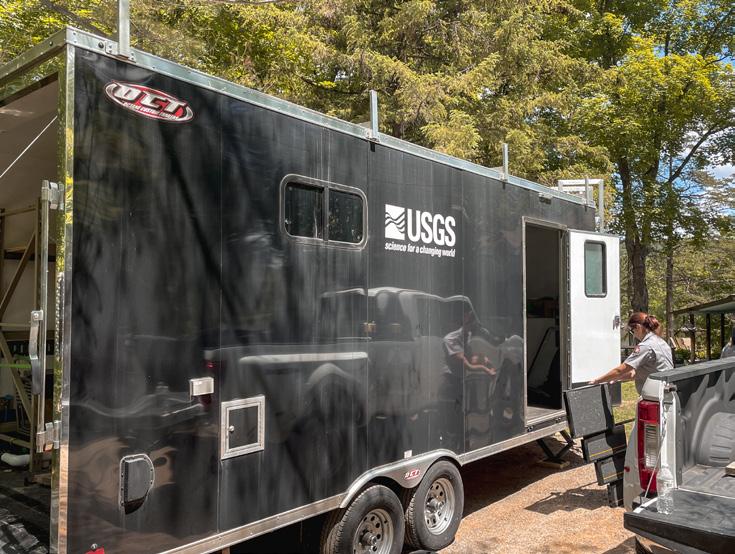
1 minute read
Working Together For The Riverway
Our Natural Resources team made strides in the preservation of lands, improvement in water quality, removal of invasive species, and sustaining the diversity of our watershed. A community needs a healthy and scenic environment to build itself around. We cannot do this work alone. Key partnerships with the National Parks Service, The Trust for Public Land, Minnesota Land Trust, Minnesota and Wisconsin Department of Natural Resources, and others allowed us to extend efforts further thanks to these respected partners.
Winged Mapleleaf Mussel Propagation
Advertisement

The US Geological Survey, St. Croix National Scenic Riverway, the Conservancy, and other partners banded together in an innovative effort to propagate the federally endangered Winged mapleleaf mussel in a lab-river hybrid setting. From early June to mid-September juvenile mussels grew in a trailer that fed river water continuously into their tanks. A total of 102 mussels survived and grew from 0.3 mm to 4 mm in total length and have overwintered in the St. Croix River. The long-term goal of this project is to stabilize this unique population that help maintain the health and resiliency of the St. Croix’s ecosystem. We are excited to see how this project continues to make strides in 2023.

The St. Croix National Scenic Riverway partnered with US Army Corp of Engineers, Minnesota and Wisconsin DNR, local universities, Mississippi National Recreation Area, and others to perform native mussel population surveys throughout key mussel beds in the St. Croix River. Conservancy staff assisted with these efforts throughout the past 2-3 years. These surveys are essential to monitor and track populations, especially the five federally endangered populations; Spectaclecase, Winged Mapleleaf, Snuffbox, Higgins Eye and the Sheepnose mussel. These surveys also track invasive zebra mussel population densities in the lower riverway. When mussels are surveyed and they have zebra mussels on them, those zebra mussels are counted, recorded then taken off the mussel to help prolong the longevity, since zebra mussels suffocate our native mussel species when they attach.







